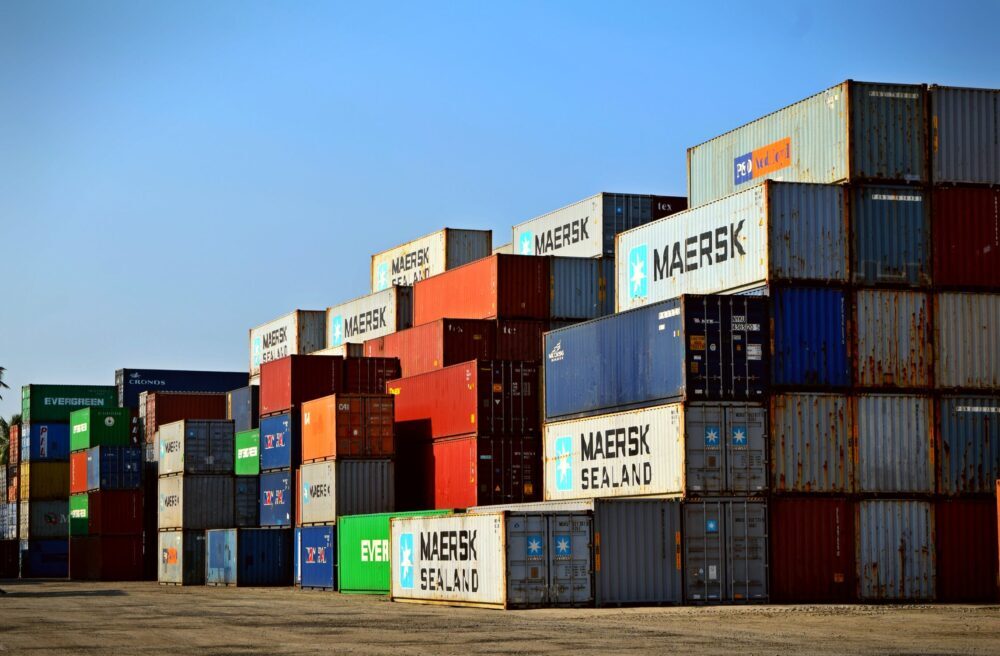New generation of exporters needed to power economic growth – BCC Trade Manifesto

The British Chambers of Commerce is today setting out its manifesto to recruit legions of new UK exporters as its research continues to show poor overseas trade growth:
- In Q4 of 2021, just over a quarter of exporting firms (29%) saw their overseas sales increase
- Almost half (47%) saw no change and a quarter (24%) reported a decrease
- This is despite substantially more firms reporting improved domestic conditions, with 45% confirming increased UK Sales in Q4.
BCC research also shows that exporters are uniquely facing a wide range of issues, from unprecedented inflationary pressures and global supply chain crises to a raft of new requirements flowing from the EU trade deal.
The Manifesto sets out a comprehensive list of steps to get more UK businesses, currently just 10%, involved in international trade. This compares to more than 60% of companies which are members of an Accredited Chamber of Commerce.
To do this the BCC is working with the whole of its Global Business Network, both within the UK and in 76 markets across the world, to help encourage the shift.
It is making the move after 23% of firms surveyed said finding a business partner or distributor overseas would encourage them to either start exporting or export more.
A further 16% of firms also said support with trade documentation would encourage them to start exporting or increase the amount of business they do overseas.
In Wales, 42% of businesses that trade internationally saw export sales decrease in Q4 of 2021and 43% of orders decrease while domestic sales and orders primarily increased or remained constant during the same period.
Paul Slevin, President of Chambers Wales South East, South West and Mid, said: “Businesses in Wales and the UK produce highly sought after goods and services but need help to maximise the opportunities that global markets can offer them, especially following the challenges of the pandemic, changes in our relationship with the EU and an exacerbated global supply chain.
“In addition to supporting the BCC’s incredibly important Trade Manifesto, we have recently launched a series of international trade training courses to help firms in Wales to overcome supply chain issues and cultivate necessary skills.”
Shevaun Haviland, Director General of the BCC, said: “The UK is bursting with amazing businesses offering goods and services that are high quality, sustainable and well designed. There are hundreds of overseas markets which are crying out for what we can offer.
“Yet only 10% of UK businesses are currently involved in exporting when all our research shows that firms trading overseas are more productive, innovative and resilient.
“So, it’s vital we now recruit a new generation of exporters to help take our overseas trade to the next level. We are standing at a moment where we can seize the opportunity to be in the vanguard of a world-wide revolution in new technology, digital services and Net Zero innovations.
“Accredited Chambers of Commerce have all the tools necessary to equip these new recruits and allow them to trade with confidence. Our ChamberCustoms service can also provide training, advice and brokerage to help goods clear UK borders with as little fuss as possible.
“Our research shows that overseas trade fell off a cliff in early 2020; just 8% of UK exporters saw any increase in the second quarter of that year. Almost two years later and the figures are still way below where they need to be, with only around a quarter reporting improvement.
“We are using our entire Global Business Network and will do everything we can to help firms explore the amazing possibilities that are out there. But more also needs to be done by government to support UK companies that have had to battle with rocketing costs, disrupted supplies and reams of new paperwork in Europe.
“If we all work together to take action then we can revitalise our exports growth and help power the UK’s economic recovery.”
The manifesto sets out a number of steps that the UK government could take to help firms trade with the EU and to make sure that any new trade agreements put the interests of business at their heart.
In Europe these include:
- Streamlining customs and trade processes to reduce paperwork and delays
- Developing more business-friendly rules on cross-border VAT
- Bringing back, and boosting, the Brexit SME Support Fund to help firms adapt
More widely they include:
- Creating a Business and Trade Growth Office at the Dept for International Trade to help smaller businesses get involved in exporting
- Providing better access for UK professional services and mutual recognition of qualifications
- Setting rules on trade that support the future exports of environmental goods and services
- Securing real benefits for importers and manufacturers in the UK on tariff reductions and rules of origin
- Providing manufacturers with better options on sourcing materials and components
Ms Haviland added: “We want to work with the UK Government and other trading bodies to build a proper coalition of support for a strong UK trade and investment strategy.
“If we want more firms to get involved in exporting then we need to see more end-to-end support to help them make the leap.
“But businesses also have the knowledge and practical know how to help the UK Government negotiate trade treaties that can open up new growth opportunities.
“We have always been champions of international trade and there is no doubt in our minds that businesses that embrace exporting to overseas markets will be better off for it, as will our economy. All it takes is a willingness to try.”




